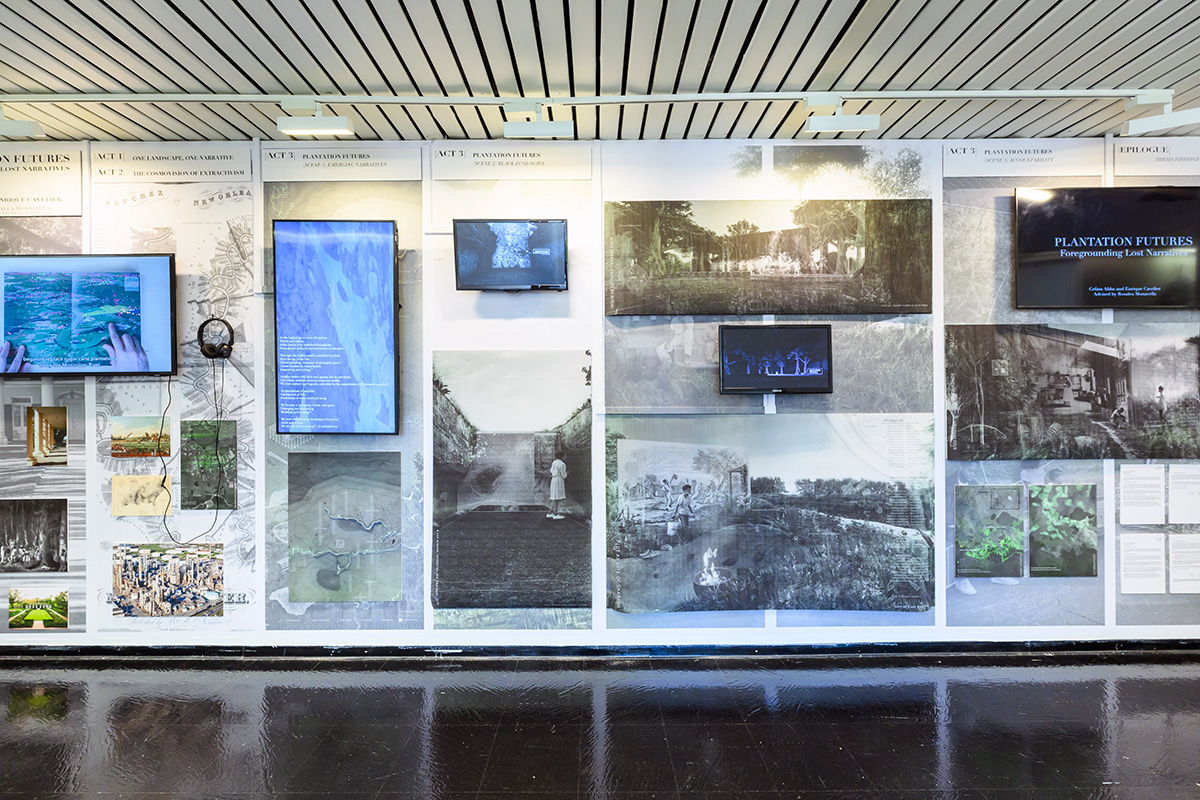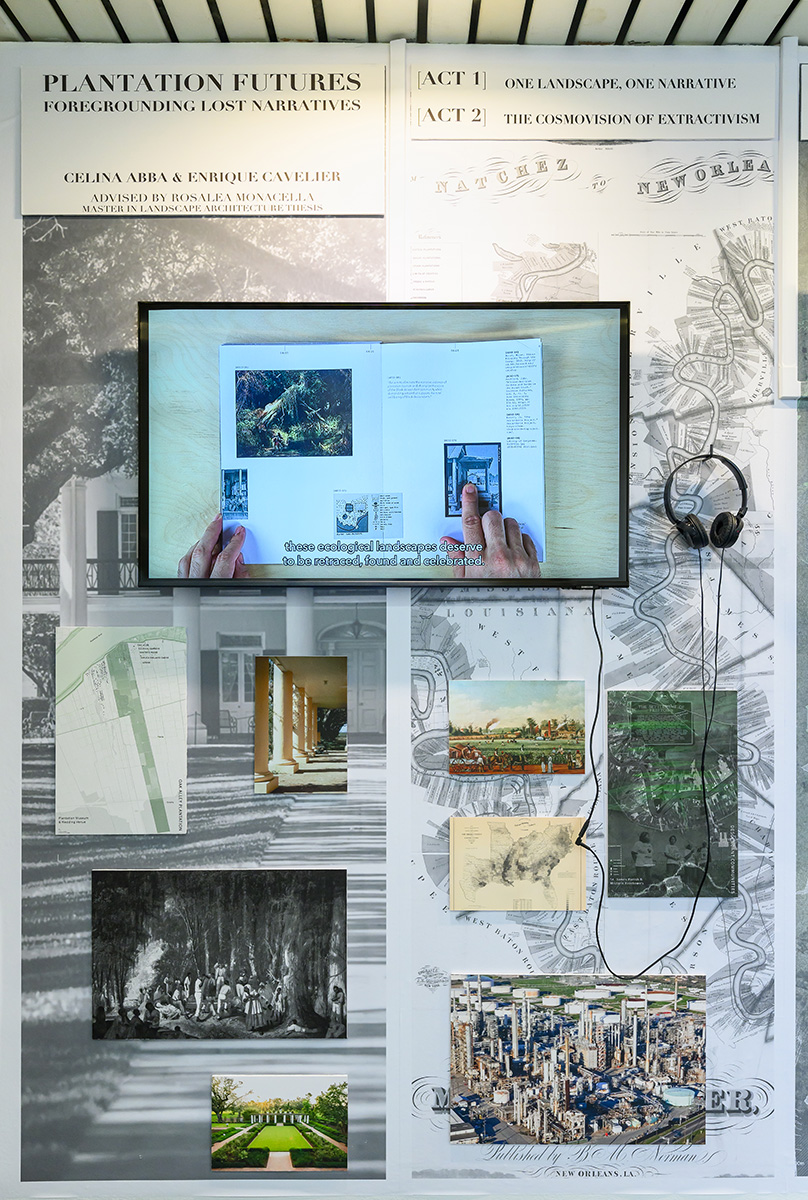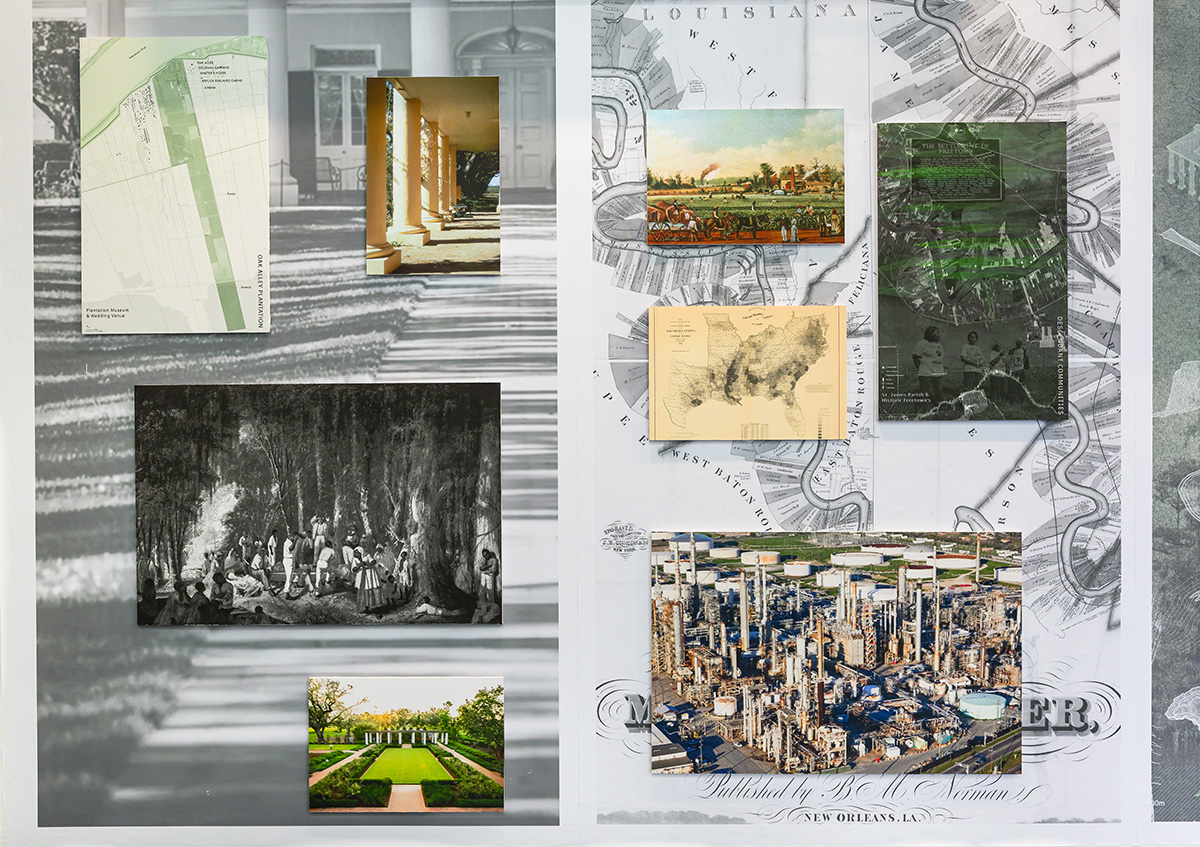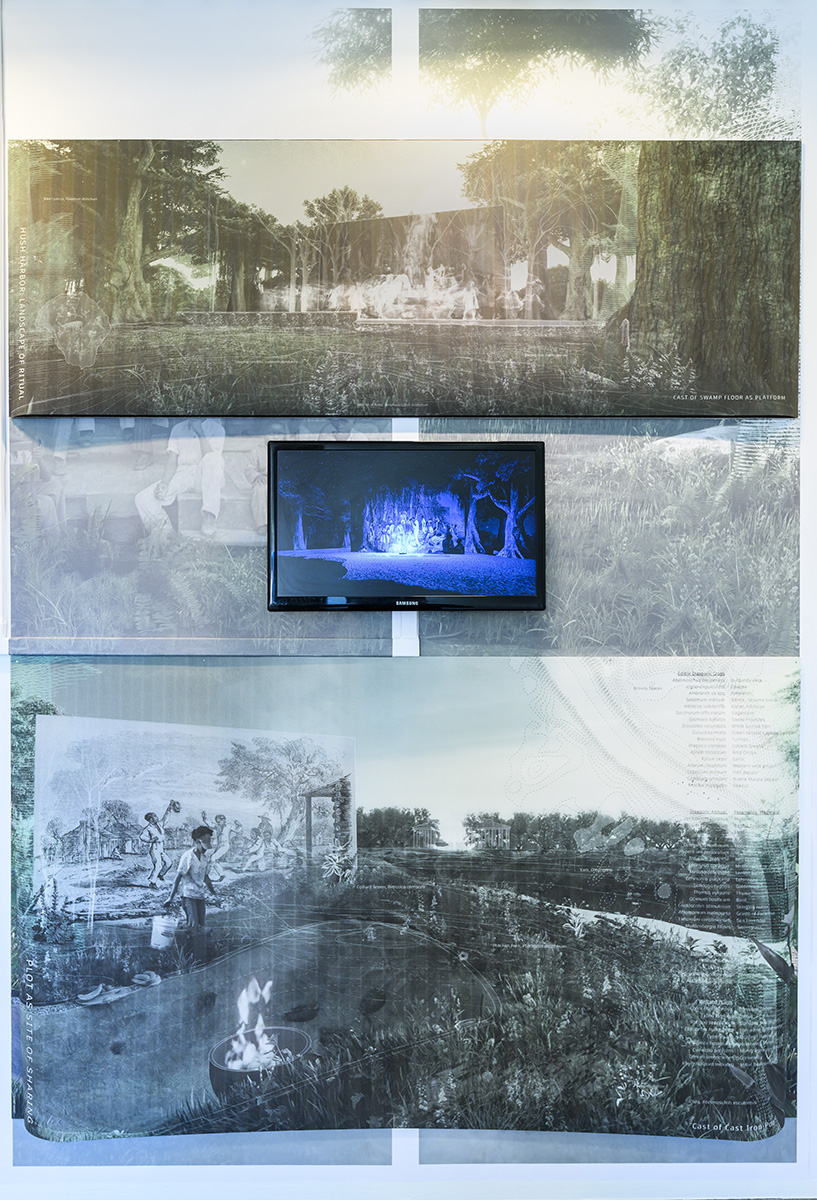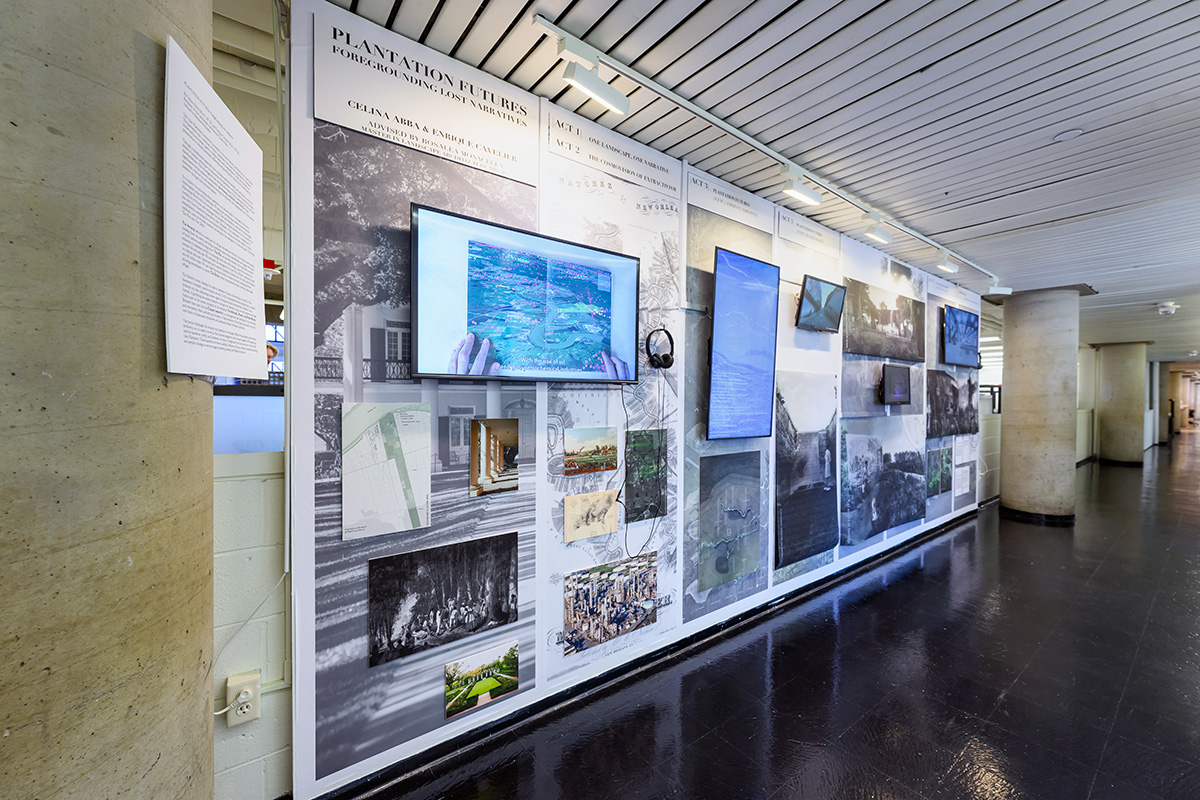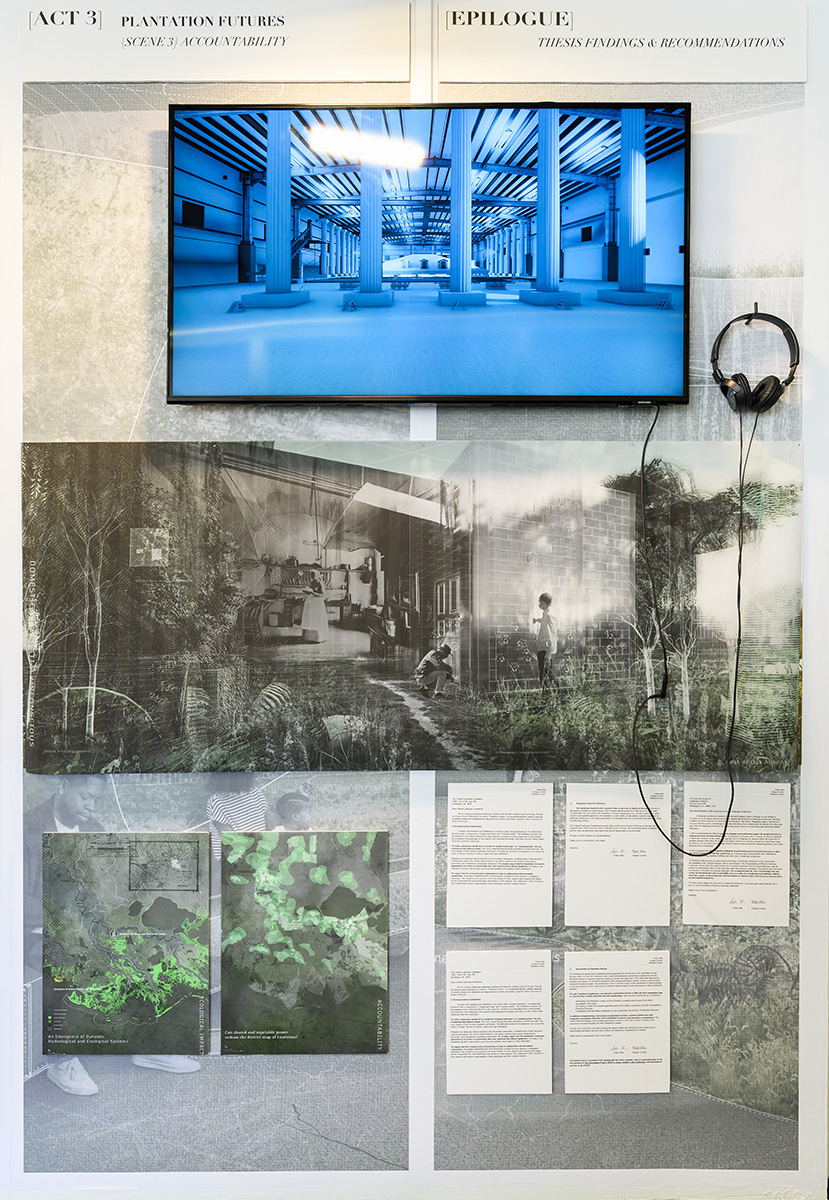Plantation Futures: Foregrounding Lost Narratives
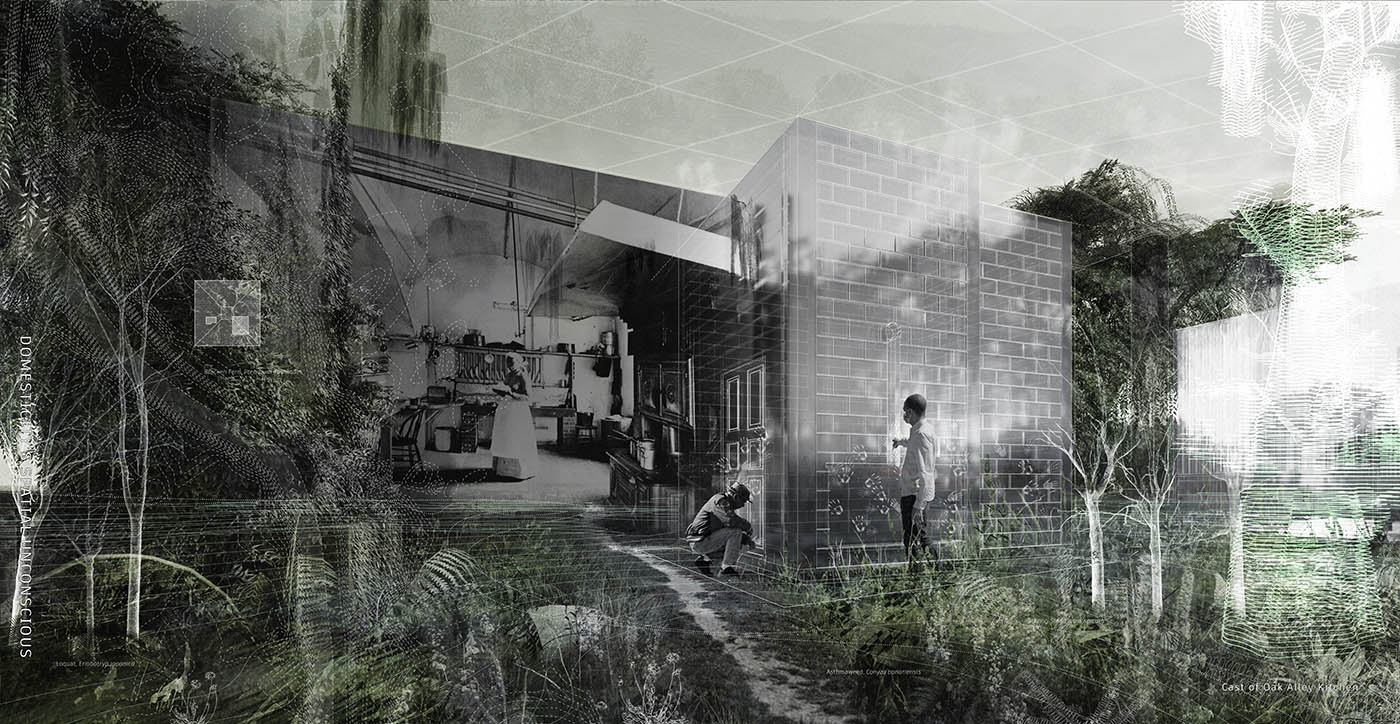
The methodology drawing of the enslaved kitchen. The rendered image is overlayed with historic indexes that were used to design the intervention. A historic image of an enslaved kitchen protrudes from the glass cast kitchen, that remains on site where the masters house once stood.
Masters in Landscape Architecture, AP Thesis Prize, 2023
Advised by Rosalea Monacella
Oak Alley Plantation, located in Louisiana, is the most famous and visited plantation in the United States. Today the plantation is preserved as a cultural landscape reflecting and glorifying the values of the Antebellum era. What is absent at Oak Alley and all the plantations upon which the United States was formed is the recognition of the forged Black landscapes used for refuge, joy, and resistance: the swamp, the ditch, and the plot.
The plantation was a complex of white supremacy that linked the exploitation of racialized bodies and non-human agents to fertile lands and commodities. These landscapes emerged as an economic and political model based on dislocated forced labor, intensive land exploitation, and global commerce supported by land dispossession, labor extraction, and racialized violence.
The thesis questions the concept and practices of heritage in the profession of landscape architecture as it is embedded in the colonial imaginary and its racial legacies. Moments for accountability and restoration are conceived, such as the Citizen Assembly, which holds industry and systems of dispossession to account through new forms of democratic processes and landscape-based evidence collection. Black ecologies emerge through layering archival narratives, poetry, and literature, foregrounding lost narratives within the plantation. These narratives envision radically different futures, where interspecies kinship and empathy surface as new ecologies that point to new Black futurities.
